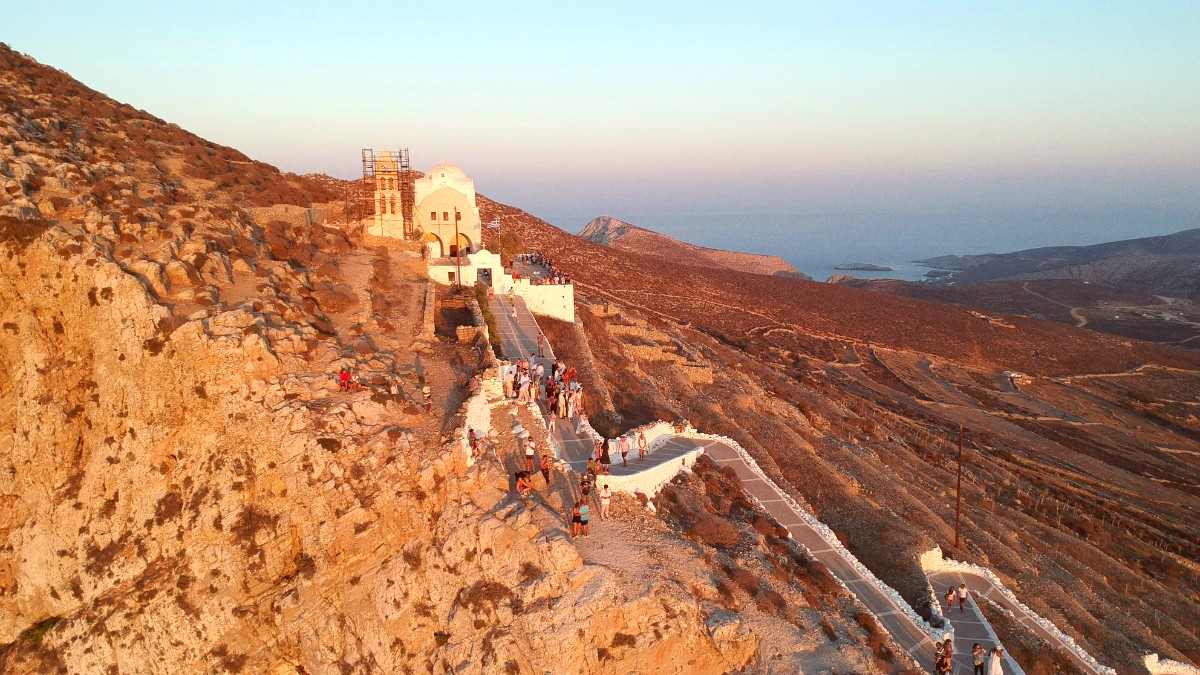
Greece
Amorgos is part of the Natura 2000 network, which protects its biodiversity, unique flora, and marine life. Efforts protect rare bird species and the Mediterranean monk seal.
Waste management on small islands faces challenges. While bins are available, recycling facilities are limited. Minimize plastic consumption by using a Reusable Water Bottle and Reusable shopping bags. Dispose of all waste properly in designated bins.
Water is a precious resource on Cycladic islands. Be mindful of your water usage by taking shorter showers and turning off taps when not in use. Desalination plants provide much of the island's water supply.
Consider offsetting your flights and ferry travel through certified carbon offset programs. This lessens the environmental footprint of your journey.
Look for accommodations that implement energy-saving measures, solar power, and water conservation. Inquire directly about their environmental policies. Support tour operators who prioritize sustainable practices.
Amorgos is dedicated to protecting its unique natural environment. Its Natura 2000 status reflects its commitment to safeguarding endemic species and habitats.
Your actions on Amorgos directly affect its delicate ecosystem. Conscious consumption of water and careful waste disposal lessen your footprint.
Contribute to global conservation efforts through organizations like The Rainforest Site (GreaterGood).
Learn MoreBuying local honey, herbs, and cheeses lessens transportation footprint and supports local economy.
Support local initiatives that try to preserve traditional architecture, crafts, and customs. Always ask permission before photographing people, especially children or in private settings. Be mindful of noise levels, specifically in quiet villages or residential areas, especially during siesta hours.
When visiting churches and monasteries, dress modestly, with covered shoulders and knees. Maintain a quiet voice inside religious buildings. Observe any specific rules regarding photography or touching artifacts. Avoid interrupting religious services.
Respect locals' privacy. Avoid intrusive photography that might make people feel uncomfortable. When in doubt, it is always best to ask for consent.
Always ask before photographing individuals, especially children.
Be discreet and avoid being disruptive when taking photos.
Follow specific photography rules in churches and monasteries.
Cultural sensitivity creates positive interactions and a appreciation for Amorgian traditions.
Your choices as a traveler can directly support the local community.
Choose locally-owned hotels, guesthouses, tavernas, and shops. This directs your money to the local community. Purchase honey, herbs, local cheeses, and handmade crafts directly from local producers. This helps sustain traditional livelihoods.
Prioritizing direct purchases from local artisans supports ethical practices and fair compensation for producers. Avoid activities that exploit local resources, animals, or people. Bargaining is generally not common in shops or restaurants.
If you wish to donate, consider supporting reputable local charities or community projects. This offers long-term, structured support rather than individual handouts.
By purchasing local products, you directly help sustain the island's unique agricultural traditions and artisanal skills. These items often showcase the authentic flavors and craftsmanship of Amorgos.
Your travel choices have a ripple effect on the island's economy.
Choose family-run guesthouses and hotels.
Eat at traditional tavernas and cafes.
Purchase gifts made by local artisans.
Avoid any activities that could exploit local resources, animals, or people. This includes participation in irresponsible tourism practices.
Every purchase you make on Amorgos shapes its future. Choose to invest in its authentic local economy.